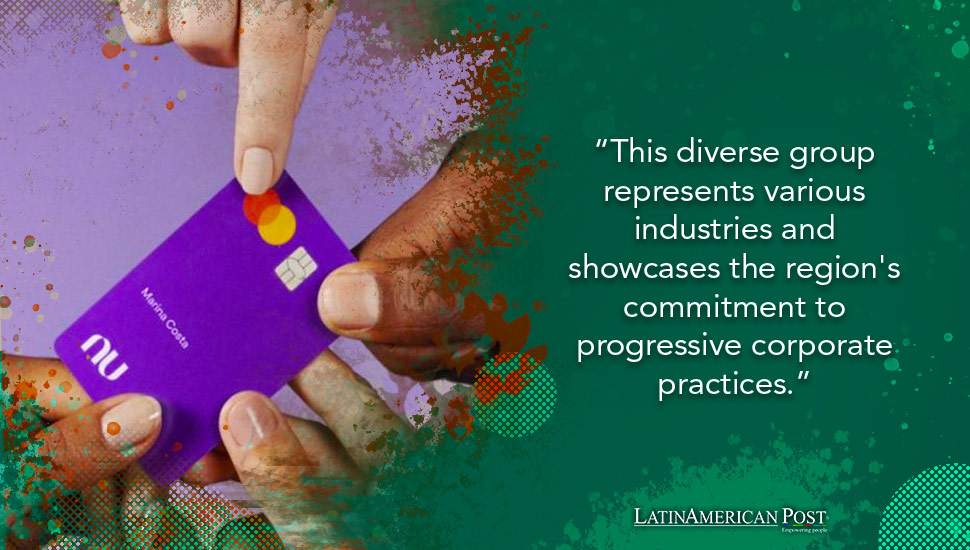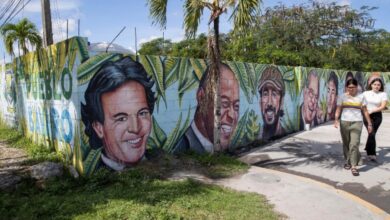Innovative Leaders of Latin America: A Profound Analysis of Change Makers

Marcos Galperín, founder and CEO of MercadoLibre, tops the extensive data-driven list of the 100 most innovative business leaders in Latin America, followed by David Vélez of Nubank and Martín Migoya of Globant.
Marcos Galperín, the Argentine founder and CEO of MercadoLibre, has been named the most innovative business leader in Latin America, according to the third edition of the “CEOs Change Makers of Latin America” list. This ranking, developed by Horse, a strategy consultancy using big data, assesses the performance of the region’s top executives based on their public contributions and impact on societal issues. This year’s list marks a significant shift, with Galperín surpassing the two-time winner, David Vélez of Nubank.
The “CEOs Change Makers of Latin America” list employs a sophisticated scoring system that analyzes actions taken by executives across various domains. This comprehensive approach includes data from the top 100 media outlets and social media platforms, like LinkedIn and X, collected between May 2023 and May 2024. The list evaluates leaders on essential corporate agenda items such as innovation, sustainability, talent management, work-life balance, and diversity and inclusion.
The top ten leaders include Martín Migoya of Globant and Pierpaolo Barbieri of Ualá from Argentina, Roberto Alvo of Latam and Adrian Neuhauser of Avianca from Chile, Simón Borrero of Rappi from Colombia, Mónica Flores Barragán of ManpowerGroup from Mexico, and Eduardo Bartolomeo of Vale and Cristina Palmaka of SAP from Brazil. This diverse group represents various industries and showcases the region’s commitment to progressive corporate practices.
Innovation and Sustainability at the Forefront
Innovation and sustainability are central themes driving the leadership styles of these top executives. For instance, Galperín’s leadership at MercadoLibre has revolutionized e-commerce and fintech in Latin America, setting a benchmark for digital innovation. His approach emphasizes creating value not just for shareholders but for society at large, a philosophy that resonates with modern corporate values.
Similarly, David Vélez of Nubank has been instrumental in transforming the banking sector in Brazil and beyond. By leveraging technology to provide accessible financial services, Vélez has not only disrupted traditional banking but also contributed to financial inclusion. His vision of a customer-centric banking experience highlights the importance of innovation in meeting societal needs.
Martín Migoya of Globant has also made significant strides in promoting sustainability within the tech industry. Under his leadership, Globant has integrated sustainable practices into its business model, aiming to reduce its carbon footprint while fostering a culture of continuous innovation. These leaders exemplify how innovation and sustainability coexist, driving business success and positive societal impact.
The Impact of Gender Diversity
Despite progress in various areas, the gender gap remains a notable issue among Latin America’s top executives. Of the 100 CEOs on the list, only 22 are women, and just two are among the top ten. This disparity highlights women’s ongoing challenges in reaching the highest levels of corporate leadership.
Mónica Flores Barragán, president of ManpowerGroup in Latin America, is among the few women in the top ten. Her leadership is a testament to women’s crucial role in shaping the future of work. Flores Barragán has been a vocal advocate for gender diversity and inclusion, emphasizing the need for equitable opportunities in the workplace. Her efforts underscore the importance of diverse leadership in fostering innovative and inclusive corporate cultures.
Cristina Palmaka, president of SAP Latin America and the Caribbean, also stands out for her contributions to promoting gender diversity in the tech industry. Under her leadership, SAP has implemented various initiatives to support women in technology, aiming to close the gender gap and create a more inclusive environment. These examples demonstrate the significant impact that female leaders can have on driving diversity and inclusion in their organizations.
The Role of Technology in Leadership
The use of big data and advanced analytics in compiling the “CEOs Change Makers of Latin America” list reflects a broader trend of leveraging technology to enhance corporate leadership. Big data enables a more comprehensive and objective assessment of executive performance, highlighting leaders who drive business success and contribute to societal well-being.
In addition to big data, other technological innovations are reshaping leadership practices across industries. For instance, artificial intelligence and machine learning improve decision-making processes, enhance customer experiences, and drive operational efficiencies. These technologies provide leaders with valuable insights, allowing them to make more informed and strategic decisions.
Furthermore, digital platforms are facilitating greater transparency and accountability in corporate governance. Social media and other online tools enable executives to communicate directly with stakeholders, fostering a culture of openness and engagement. This increased visibility and interaction help build trust and strengthen relationships between businesses and their communities.
Latin American Context and Future Prospects
Latin America presents a unique landscape for corporate leadership, characterized by diverse economic conditions, cultural richness, and significant social challenges. The leaders highlighted in the “CEOs Change Makers of Latin America” list navigate this complex environment with innovative and inclusive strategies that address business objectives and societal needs.
Countries like Argentina, Brazil, Mexico, Colombia, and Chile dominate the list, showcasing their leadership in driving corporate innovation and social impact. These nations are home to some of the most dynamic and forward-thinking executives, who are setting new standards for leadership in the region.
The broader implications of these leadership practices extend beyond Latin America, offering valuable lessons for global business leaders. By prioritizing innovation, sustainability, and diversity, these executives demonstrate how businesses can thrive while making a positive difference in society. Their success serves as a blueprint for other leaders seeking to navigate the challenges of the modern corporate landscape.
The “CEOs Change Makers of Latin America” list provides a valuable snapshot of the region’s most innovative and impactful business leaders. By leveraging big data and advanced analytics, this ranking highlights the critical role of technology in modern leadership. The examples of leaders like Marcos Galperín, David Vélez, and Martín Migoya underscore the importance of innovation, sustainability, and diversity in driving business success and societal progress.
Also read: Reliable Reporting Essential for Addressing Latin America’s Homicide Crisis
As Latin America continues to evolve, these leaders pave the way for a more inclusive and sustainable future. Their achievements offer inspiration and guidance for other executives striving to make a positive impact in their organizations and communities. The lessons learned from their experiences are invaluable, demonstrating that businesses can be a powerful force for good with the right vision and strategies.





